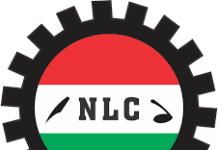In the absence of Covid-19 vaccines that can reduce prevalence, slow down mutations, severe disease and death, the region is heading towards a catastrophe if immediate action is not taken by governments, employers, and other stakeholders, say Industrial Global Union affiliates in Sub Saharan Africa.
With hospitals, clinics and other public health facilities overwhelmed and running out of intensive care beds, unions say vaccination is now a matter of urgency in a surging pandemic that has increased deaths by 40 per cent in the last few months.
According to the Africa Centre for Disease Control, on 27 June, there were 140 976 deaths and 4 736 725 recoveries, 52 059 658 tests had been taken.
Reports indicate that the highly contagious delta variant has been detected in some countries, and infections in the region are currently growing the fastest globally, with some governments including the Democratic Republic of the Congo, Kenya, Namibia, South Africa, Uganda, and Zimbabwe tightening lockdowns and Covid-19 regulations to contain the spread.
The unions, that organize in mining, textile, garment, shoe and leather, chemical and pharmaceutical and manufacturing sectors are expressing concerns at the slow pace at which Covid-19 vaccinations are taking place in their countries.
Sipho Mungwe, the National Union of Mineworkers (NUM) South Africa health and safety secretary says:
“The NUM is deeply concerned about the increasing prevalence of Covid-19 infections at the workplaces and is sending a clarion call in support of a speedy vaccine roll out. However, the vaccination programme should respect workers’ rights.”
According to reports, vaccination programmes are the lowest in the world with less than 3.7 doses per 100 people inoculated against Covid-19 in Africa compared to 67 per 100 in Europe and 73 per 100 in North America.
Unions say the surge is worsening a public health and economic crisis that has seen thousands of workers getting ill and dying. Millions of workers have lost jobs, while wages are sometimes delayed or unpaid. Weak social security systems have worsened the situation with poverty and unemployment increasing.
Unions see vaccination as one of the solutions to the crisis and are supporting the Covax facility that was set up to procure vaccines for developing countries. Covax, a partnership between CEPI, Gavi, UNICEF and WHO, is anchored on global collaboration on development, production, and equitable access to Covid-19 tests, treatments, and vaccines.
“We have launched an online campaign on social media to promote vaccination and have also created an online messaging platform for our shop stewards to engage management and sensitize workers on the need for vaccination to counter misinformation. We are also using the messaging platform to reach our members. This is how we are able to campaign because we are under a lockdown,”
says Justina Jonas the general secretary of the Metal and Allied Namibian Workers Union.
Further, unions support the African Vaccine Acquisition Task Team which aims to achieve 60 per cent immunization on the continent, and bilateral agreements of vaccines.
Unions are also supporting local manufacturing. For example, in South Africa, the unions support the manufacturing of the Johnson and Johnson vaccine through local pharmaceutical company, Aspen Pharmacare.
Further, the unions support the TRIPS waiver proposals made to the World Trade Organization (WTO) by India and South Africa as this will improve vaccine manufacturing.
The unions also want Covid-19 to be declared an occupational disease so that workers can receive compensation when they get ill or die from the disease and continue to carry out awareness campaigns, promote wearing of masks, hand sanitizing, and better ventilation of indoor spaces as part of their health and safety programmes.
Paule France Ndessomin, IndustriALL regional secretary for Sub Saharan Africa, says:
“Concerted effort is needed by unions, governments, social partners, and global initiatives that include Covax and the TRIPS waiver campaign. The local manufacturing of vaccines is also key to making vaccines accessible. Vaccine equity is required because Covid-19 is a global pandemic and developed countries cannot hoard vaccines that are urgently needed in Sub Saharan Africa and other developing countries.”
























